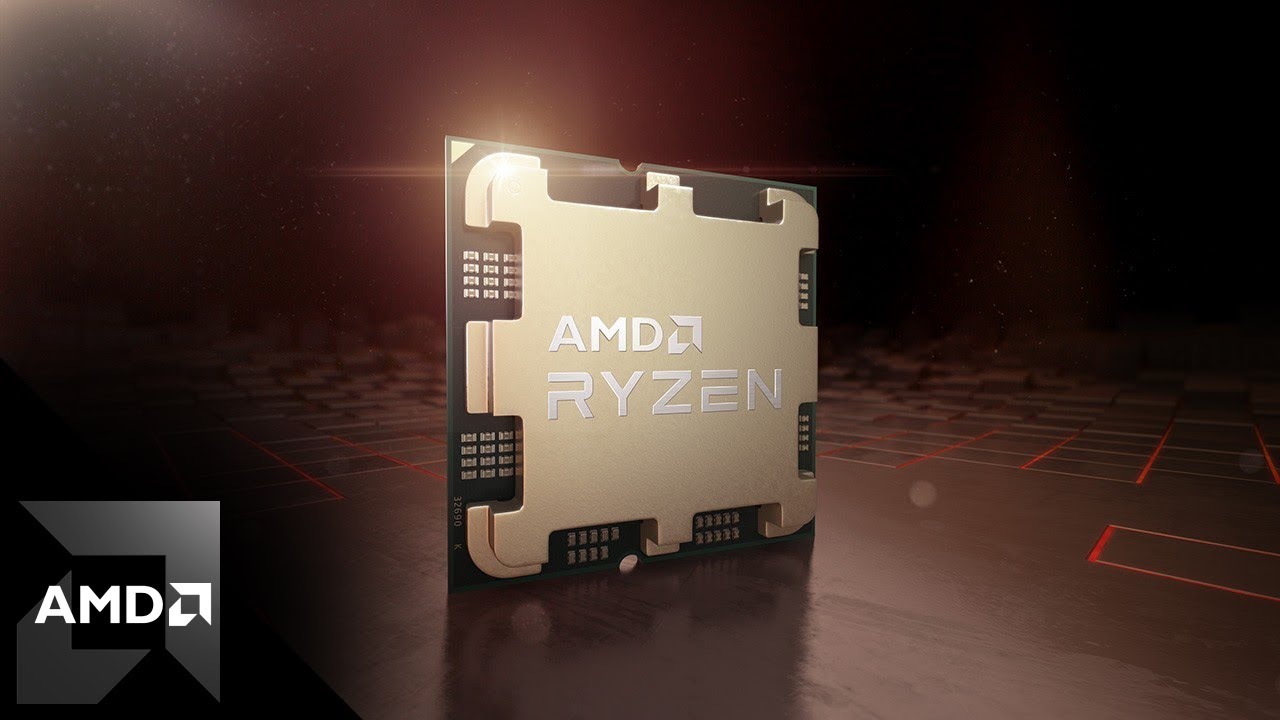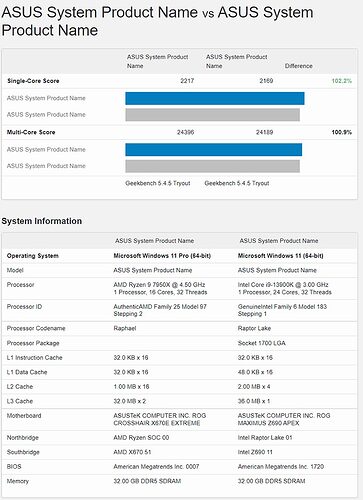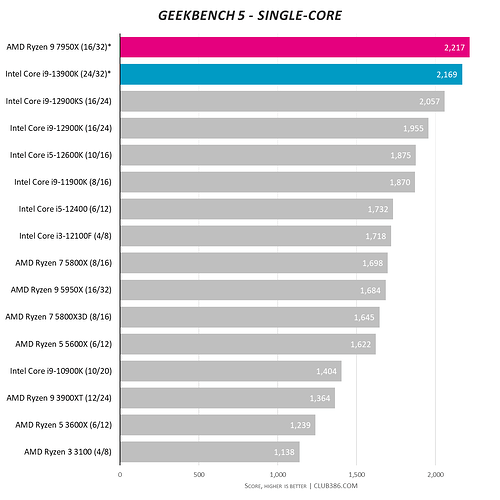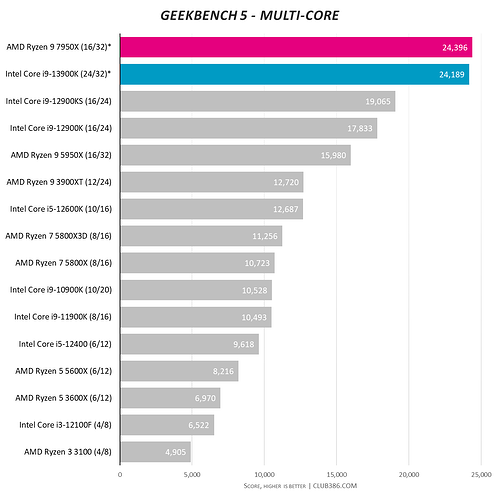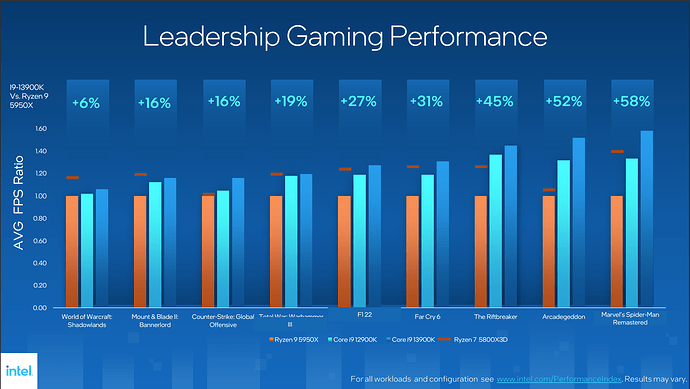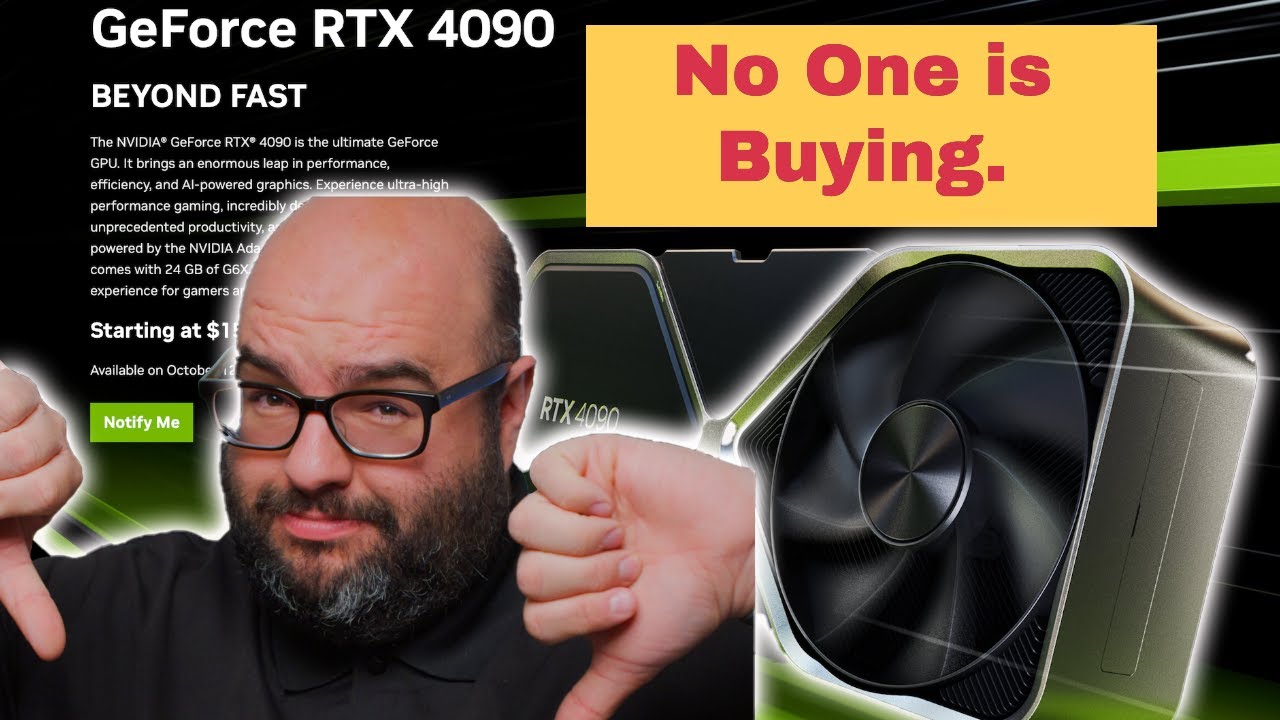We’ll see with Intel. 12th gens launch hasn’t exactly been smooth.
Some quick and timely belated updates to add to the news column:
I am delighted to report that the RDNA2 iGPU performance is no mere hype. The 680M is like a dream come true for low power gaming. ![]()
After doing updates on my new Lenovo Slim 7 Pro X I installed Steam then Skyrim LE—which struggled to get 60 fps at medium-high settings at 720p on Xe Graphics 96EU. Auto detection set it to Ultra with 1920x1200 resolution and… perfectly smooth gameplay pegged to 50-60 fps* nearly the entire Intro till my character’s bonds were cut at which point I called it a (good) day.
The laptop display has G-Sync, which the Radeon drivers treats as FreeSync. I’ll have to experiment with RSR after I install the full Adrenaline driver suite tomorrow. As of last May it works with 6000 series iGPUs.
Good job, AMD!
*—Oops, initially I didn’t get the correct Skyrim .exe set to the 680M and it was pegged at 60 fps 'cause of the RTX 3050. 1920x1200 on Ultra is pushing it for the 680M, with dips to the mid-40s fps, though it’s still smooth probably due to FreeSync. Anyway, at 900p it’s doing mostly 60 fps on Ultra and that’s still excellent.
Edit: I’m not entirely sure what I’m doing yet but I installed the full Adrenaline drivers and seem to have it going at 1600x1000 upscaled with RSR (Radeon Super Resolution) to native 3072 x 1920. 60 fps or close to it during the intro. We’ll see how it goes after I add a couple hundred mods, including texture enhancements. Pretty sure I’ll need to tone down the Ultra setting. ![]()
Really curious to know who will win the next battle between raptor lake and ryzen 4.
In a curious turn of tables, Intel has disabled the AVX 512 support, while AMD will now support it:
ZEN 4 is beeing launched today:
And it seems that the 7950X will be both very fast, and very complete:
AMD’s Ryzen 7950X is up to 57% faster than the 5950X, 62% faster than Intel i9-12900K - Neowin
They had me there! Man, AMD pulled the wool over everyone’s eyes with the leaked benchmarks they seeded making many like me think Zen 4/Ryzen 7000 was going to be slower than the Intel Core i9 12900K. AMD sandbagged the most ever in their history with this release, even underselling their IPC improvement earlier this year as a mere 8-10% improvement, but in fact it’s a 13% improvement gen-over-gen.
These two slides say it all for me. One, Geekbench is traditionally Intel’s last refuge for claiming they hold a lead in single-threaded performance. Surprisingly, even here, Intel falls flat on their face. Perhaps it is due to them having Intel beat in AVX across the board, and hey have Intel beat in AVX support where they have AVX-512 and Intel does not. The Intel Core i9 12900K loses across the board to the entire Ryzen 7000 series line-up. Two, gaming is Intel’s other claim to fame. Here too, they buckle under pressure. The lowly Ryzen 5 7600X makes mincemeat of the Intel’s flagship Core i9-12900K in gaming which is totally insane. It is 5% faster on average in gaming and this is the entry-level product we are talking about here.
Your dinner, sir:

Yes, truly master class sand bagging by AMD. Their hire of some of Apples marketing folks is paying dividends.
The bigger thing to note is Intel and AMD’s YoY performance growth is well above Apple. It takes no electrical engineering degree to piece together that if Apple only does single digit percentage growth year after year, I am modifying the colorful comment made by Gensinger and changing the subject from AMD to Apple:
Epic battle or not, I see another war a-brewing and and all from the beauty of healthy and fertile competition. Look at the insane growth in just 2-3 generations from Intel and AMD. Doubling performance in single core in just three short years has not come even from the likes of Apple. If these two keep this pace up, Apple is going to be the one in both of their rear view mirrors. We need this growth to bring about a renaissance of computing.
Ryzen 7000 series is out. Am I excited?
Nope. In fact, I am more excited about 13th Gen Raptor Lake! Why?
Generally, you see an improvement in price-to-performance with each new generation. We are not seeing this with Ryzen 7000 series thanks to an extremely high platform cost due to AMD’s motherboard partners drastically increasing the prices across the board for all motherboard lines. In the case of the most popular models, we are seeing as much as a $300 increase over the release or launch prices of the previous generation ($400 to $700).
Here is the breakdown: $700 versus $400 launch price for the same class of motherboard (specifically, the ASUS Crosshair Hero series and MSI ACE series among others). Then add DDR5 prices which are at least $100 more than DDR4 (G.SKILL Trident series). Both put together, this means an approximate $400 total platform premium right out of the gate even before you secure your processor. Now couple that with $120 more for the 16-core flagship Ryzen 9 7950X over the upcoming 13th Gen Raptor Lake flagship Core i9-13900K or preexisting 5950x, which is sure to see prices slashed further as 13th Gen enters the market. All tallied up at checkout, that’s well over $500 more compared to a Ryzen 9 5950X.
How is this even a good deal? No, the Ryzen 9 7950X is not some of the best price-to-performance–not even hardly! Instead, we’re getting a 45% uptick on average in multicore performance according to Tom’s Hardware cumulative benchmarking score. That means Ryzen 7000 series is a downright terrible value! Now being totally fair, I do not believe that this is quite RTX 4000 series levels that we are seeing in the raucous GPU market. However, it is still quite bad generation-over-generation when you ordinarily see an improvement–not so here. This is not a strong showing in price-to-performance leadership there, Lisa Su.
More precisely, here are two very closely matched barebones bundles with equivalent lines of products for the motherboard and RAM. One bundle is for a Ryzen 9 5950X and the other bundle after it for a Ryzen 9 7590X. Both price lists come from NewEgg and were effective as of today, September 28th, 2022.
Ryzen 9 5950X platform price
= $1,078.85
Ryzen 9 7950X platform price
= $1,629.97
All told, customers are being told that they must pay 51% more for only 45% more multicore performance.
Not worth it.
This is not even considering the higher cooling and power requirements either. These have potential additional costs as well depending on the current state of your current setup. Besides the threat of 13th Gen next month, this disappointment in price-to-performance is the other reason we are not seeing units flying off the shelves like we did with Ryzen 3000 and 5000 series. In checking online, US-based Micro Center still has hundreds of units of the 7950X in stock a day later nationwide across their retail locations. Floor traffic and customer purchases have been reportedly very low. If that does not scream ho-hum for what was previously a virally popular Ryzen line, I do not know what else does. This was never the case with either of the two previous product launches, the Ryzen 9 3950X or Ryzen 9 5950X. In those cases, we saw people quite literally camping out the day before and units selling out within hours on release day.
I totally loved my Ryzen 9 5950X. Man, what a technical tour de force! Now, however, even with lipstick thickly and elaborately spread on this silicon pig by AMD’s PR team, I am calling it like I see it. AMD is in for a rude awakening come their next quarterly investment call unless they and their motherboard partners drastically slash prices between now and the revenue-critical holiday shopping season.
A bit rich to say AMD are putting lipstick on a pig when Intel can’t even benchmark stuff with the same test benches and put out graphs in which where their competition matches or beats them, they make that part as hard to see as they can.
On the one hand, Intel put the numbers of the Ryzen 7 5800X3D on their graph in an unclear way.
On the other hand, AMD completely omitted the Ryzen 7 5800X3D from their benchmarks entirely–when, in many cases as the reviews show, the 5800X3D holds its own against the latest generation 7000 series in gaming and sometimes even surpasses the flagship Ryzen 9 7950X. As some AMD fans are saying, AMD with their 3D V-Cache made the 5800X3D too good for their own good.
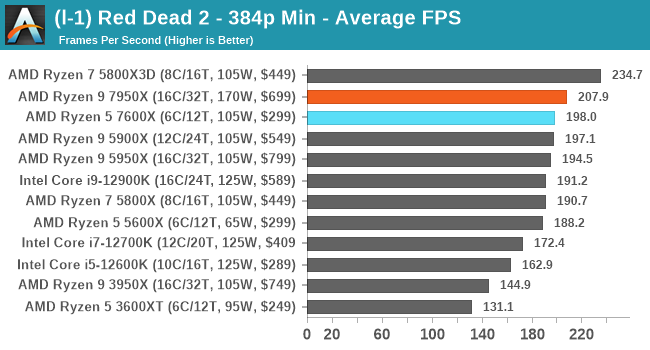
Grossly misleading versus missing entirely? I will take Intel’s sin of commission over AMD’s sin of omission in this particular circumstance.
I also noticed a titanic dive in general builder enthusiasm at my local stores as well that I haven’t seen, quite frankly, ever. There is a substantial reason why NewEgg is taking part in Zip Co’s “Zip Fest” and doing a storewide 15% off and that’s precisely because they are starving for cashflow even it is at a huge loss. Consumer PC sales are flatlining so it is going to be a rough go and touch and go for retailers in the PC market for at least the next year.
I would like to see it tested vs the M2 MAX. The only test I found so far is this one:
https://www.cpubenchmark.net/compare/5232vs5183/AMD-Ryzen-9-7945HX-vs-Apple-M2-Max-12-Core-3680-MHz
Here you go. The 12-core M2 Pro and M2 Max share the same CPU configuration with the only differentiator being the GPU. This is what NotebookCheck found. Earlier in the article, the Apple M2 Pro got 14787 Points.
Out of interest, we ran the new Ryzen 9 7945HX (Zen 4, 5 nm) at 35 watts and the results were 16,872 points in the Cinebench R23 multi-test - so the AMD chip is more efficient than the M2 Pro.
Source:
So even with an MCM design, inherently less efficient in power but a cost saver in terms of yields and economies of scale, that uses a mix of TSMC 5nm and 6nm process, AMD pulls ahead with a 12% performance advantage. If they were to convert this chip into a single monolithic die at 5nm, they would further improve efficiency though with the downside of lower yields and see even a wider gap. So by all accounts as we can see here with AMD, their CPU design is alive and well and can hold its own against Apple’s M2 family of chips thanks to employing a competent x86 design (not looking at you, Intel).
Nice! Now My wishlist to Santa (to AMD…) Add quad or eight channels of memory, and make the first X86 based notebook CPU with the same memory bandwidth as a server CPU ![]() (Come on… Apple has it already…)
(Come on… Apple has it already…)
Or do it like apple and incorporate the memmory into the chiplet for the same speedadvantage, and it would fly
That only really works if your have a limited portfolio of devices.
And if some of your customers want the ability to do some upgrades, then you annoy them.
So AMD has done this various combinations of all of these things, just not all together, all at once. The most ambitious offerings they have done are the console APUs: a monolithic (meaning single die, which reduces idle power) die combining a CPU with a dedicated GPU size integrated GPU.
